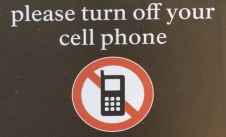 At first, I envisioned the retreat as being so harmonious that I would not need to set rules. Each group of guests, I supposed, would decide the mood of the retreat among themselves. Civilized women shouldn’t need a handbook or a set of Dos and Don’ts. Surely, I thought, the women who came to a writing retreat would be experienced at publishing, needing only a quiet place and some gentle guidance to turn out page after page of brilliant writing.
At first, I envisioned the retreat as being so harmonious that I would not need to set rules. Each group of guests, I supposed, would decide the mood of the retreat among themselves. Civilized women shouldn’t need a handbook or a set of Dos and Don’ts. Surely, I thought, the women who came to a writing retreat would be experienced at publishing, needing only a quiet place and some gentle guidance to turn out page after page of brilliant writing.
That was before the arrival of the woman who drank four pots of coffee a day. When she was thinking, she paced back and forth through the hallways and across the deck in hard-soled shoes.
I had already decided not to allow smoking at the retreat; some guests might be allergic, and the smell sets itself solidly into furniture and bedding. Moreover, a carelessly-tossed cigarette could set the prairie afire.
Then a woman arrived reeking of cigarette smoke who assured me that she had quit smoking that very day. She kept slipping out to her car, digging through the ashtray, and puffing on butts.
“You know,” I said, “You’re putting a lot of pressure on yourself, writing and quitting smoking. There’s a grocery store six miles away; you could get cigarettes. Or,” I laughed, “flag down a trucker on the highway and bum some.”
“Flag down a trucker?” she said with a thoughtful expression.
Coming to Windbreak House is like coming home. I feel inspired and recharged and entirely supported. . . .
Surely, I thought, it would not be necessary to mention that I didn’t want illegal substances in my house; still, not everyone takes the possible consequences seriously. A school that used to send graduate students here every fall to learn about sustainable ranching and get support for their own writing is now banned from returning.
This place . . . . creates peace like a fragrance.
One writer submitted work and was accepted, but did no writing while she was at the retreat house. She practiced shamanic drumming on Badger Ridge, or smeared herself with oil and lay in a deck chair. Whenever I suggested she work on her writing she promised to do so, but did not. On the third day of retreat, I warned her that three-hour baths, leaving other guests without hot water, were not acceptable. Her journal entries recorded only her complete self-absorption, with no awareness that she had not really accomplished anything but a vacation.
“J” got her morning exercise persuading a calf to go back with the yearlings, very deftly. She shall now be known as “Dances with Cows.”
I established a minimum age requirement of 18, reasoning that anyone under that age should not be in residence with grownups who might like a drink with dinner, or who might speak of topics unsuitable for teenage ears. Then I accepted an application from a writer who turned out to be 17. She talked me into letting her father come as chaperone. He was more interested in how much the house had cost to build than in his daughter’s writing. He stayed one night, spending most of his time on his cell phone before deciding I wouldn’t compromise his daughter’s morals. Several times, mothers and daughters have come for retreats; on one occasion, the girl’s father and brother dropped her off with a friend at a mother-daughter retreat and then got a cabin in the Hills for their own retreat.
I wish all the people in the world could spend a few days in the quiet of Windbreak House or somewhere, anywhere where no phones ring, where words are appreciated, where lives are validated.
 The house has no rule of silence, but I encourage respectful quiet, suggesting that residents turn off their phones. If they are worried about emergencies, I tell them how their loved ones can reach the local Sheriff if they need to contact us. Some just check their messages once a day and do not respond. Once in a while a writer uses a smart phone to go online, but the retreat house has no internet connection. Getting disconnected from these daily distractions can make a huge difference in a writer’s life, but it is becoming increasingly difficult for some; a few have been astonished that I’d even suggest it. Most are later grateful.
The house has no rule of silence, but I encourage respectful quiet, suggesting that residents turn off their phones. If they are worried about emergencies, I tell them how their loved ones can reach the local Sheriff if they need to contact us. Some just check their messages once a day and do not respond. Once in a while a writer uses a smart phone to go online, but the retreat house has no internet connection. Getting disconnected from these daily distractions can make a huge difference in a writer’s life, but it is becoming increasingly difficult for some; a few have been astonished that I’d even suggest it. Most are later grateful.
Writing helps capture ideas only if they are there. I find they come more easily if I quiet myself and pursue them. Anything that interrupts thought hinders that process. Using a phone, watching TV, blogging, looking at Facebook, texting, emailing– none of these are thinking.
++–++–++–++
One of my favorite quotations is this:
“To get these new ideas down on paper, I needed solitude so I slunk off to the cabin . . . and spent a week writing. It was a glorious week. I arose at six-thirty and thought until eight, by which time my thinking had made me hungry. . . . I was able to write then until about two. . . . about 1,500 words a day.
— Jon Hassler, My Staggerford Journal
I like to point out to writers that this writer doesn’t say he had coffee or read the paper— he thought from six-thirty until eight.
Without turning on the TV, or his iPad or his smart phone.
++–++–++–++
Silence in which to think may be the most valuable tool a writer can use, and it is becoming increasingly rare in our daily lives. Studies have indicated that exposure to as little as two hours of silence can help develop new brain cells associated with memory, emotion and learning. Silence, said the researchers, literally made the brain grow.
An earlier study showed that even when the brain is resting, it was perpetually active, internalizing and evaluating information. (I think this is why I sometimes wake up puzzled by my dreams; my brain has been busy working out some problem I hadn’t considered consciously.) When the brain rests, said one researcher, it is able to integrate internal and external information, that is, to continue working. When you are not distracted by noise or concentrating on particular tasks, your brain has the freedom to discover where it belongs in your internal and external world. As Herman Melville wrote, “All profound things and emotions of things are preceded and attended by silence.”
Noise can result in elevated levels of stress hormones, causing a detrimental physical effect on the brain. Noise makes a brain work less efficiently, and causes decreased motivation and an increase in errors. The cognitive functions most strongly affected by noise are reading attention, memory and problem solving, all important tasks for a writer.
The good news resulting from all these studies, however, is that the brain can restore its cognitive resources when it is in an environment with lower levels of sensory input. In silence, the brain can “let down its sensory guard” and restore some of the balance that has been lost through excess noise.
A retreat, then, can literally enable a writer’s brain to restore its equilibrium.
Still, the retreat house has a CD player, and sometimes silence is shattered. During a solo retreat, I’ve sometimes approached the house to find the windows rattling with music, perfectly acceptable as long as only one writer is residence. Usually when the writer finally hears me knocking, I learn she’s celebrating a writing breakthrough with a joyous explosion of sound.
++–++–++–++
 When I have an idea, it’s easy to write furiously: I take notes in my journal, I mumble to myself and take more notes while walking the dogs, and I sit at the computer and type wildly. Once I’m immersed in a project, my subconscious mind keeps working while I get lunch started, answer an email or two. At night, in order to stop thinking about the writing, I read a mystery until I fall asleep.
When I have an idea, it’s easy to write furiously: I take notes in my journal, I mumble to myself and take more notes while walking the dogs, and I sit at the computer and type wildly. Once I’m immersed in a project, my subconscious mind keeps working while I get lunch started, answer an email or two. At night, in order to stop thinking about the writing, I read a mystery until I fall asleep.
But what really helps with writing, or with any other problem, is to simply sit down, stare into space and think. (Thinking can be accomplished while walking dogs if no one is talking, but it’s easy to be distracted by the dogs’ antics, the rabbits, interesting rocks and plants.)
I do believe that some of the most important thinking can happen while you are doing routine chores, or sleeping, or at other times when you may not realize you are not writing. Thinking can happen anytime and anywhere and you need to be prepared.
To be continued . . .
Linda M. Hasselstrom
Windbreak House Writing Retreats
Hermosa, South Dakota
© 2017, Linda M. Hasselstrom
# # #
Author’s note: I wanted Windbreak House writers to speak for themselves in this review of twenty years, so, unless they are otherwise identified, all comments in italics are from the Windbreak House journals, written by writers after their retreats.
Information on the benefits of silence came from “Science Says Silence Is Much More Important to Our Brains Than We Think,” by Rebecca Beris.
http://www.lifehack.org/377243/science-says-silence-much-more-important-our-brains-than-thought

Thank you for the post, which makes me think I need a retreat reunion. I highly recommend your retreats to anyone interested in writing, or improving your writing skills, which I need to do, so hopefully can make it to one this year.
Thanks Yvonne. You know you’re always welcome here. And you recognize some of the folks in my comments, don’t you??
Linda, you might like to read The Book of Silence by my friend Sara Maitland. I won’t try to sell it, because it’s several years now since I read it and I’d probably have to skim through it to say anything worthwhile, but I remember it as provocative and thoughtful.
Thanks, Alan, I’ll look for that. Sounds like just my cup of tea.
With thanks! Valuable information!